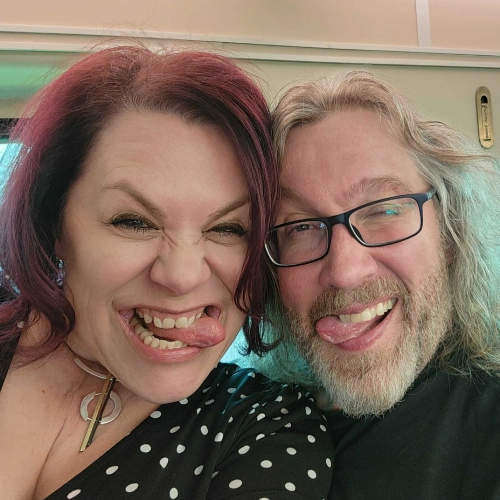Last week, we confronted Credibility head on: how it isn’t something you have, but something you project. We talked about how your voice, presence, professionalism, knowledge, and expectations all shape how others perceive you. And while credibility makes people trust you, it doesn’t necessarily make them like you. That’s where charisma steps in.
Charisma isn’t about being the loudest in the room. Charisma isn’t faking the most enthusiasm. It’s about likeability. It’s the subtle mix of warmth and interest which makes people want to listen to you. The right words in the wrong tone is just noise, where a gentle “hmm?” from someone who cares is enough to get you to open up.
This week, we’re diving into the mechanics of charisma. I’m choosing that word because it seems the opposite of charm, and we all know a highly technically skilled person who struggles with social interactions.
Charisma is never about looks, but social skills. Take an antisocial shut in and magically transform him into a Disney prince, and he will still lack the skills to be charming. Gene Hackman was in more than 70 movies, but never the heartthrob on anyone’s bedroom wall. Tricia often calls this presence or an X Factor. Sheer presence may be hard to control, but your warmth isn’t.
Warmth is how open and friendly you are. We can show it with our voices and our body language, and it’s absolutely something you must think about in the moment. (Well, at least I do.) My downturned face and giant body can easily look angry and intimidating. My solution is basically to think actively positive thoughts about people around me, rather than judging their immediate behaviors.
I am constantly thinking of ways to compliment people in the event I end up in a social interaction with them. It changes my look to “resting praise face” and makes my body language more likely to show “open to engaging in conversation.” Maybe trying to think nice things about others is my faking it, or maybe it’s where warmth begins. If conversation does start, I’m ready early with a compliment and interest.
Curiosity is harder to fake. Are you genuinely interested in others? Everyone can sense insincerity. Humans start as curious beings always asking why, so it’s in you. Remember the most interesting person at any party you have even been to… it’s likely the one who was the most interested in you. Maybe they asked you great questions, or just asked about you.
Be interested, not interesting
Often when we go to “deliver a script,” our curiosity is turned off, and our performing mode is turned on. It’s a “look at me” moment, even if we have had our “warmth” turned on. When you use your inherent curiosity to learn more about the person, and we often find it changes which script you’d even be delivering.
Picture a stranger with these two traits. They’re interested in you and seem to like you. They smile when you engage with them, compliment your jacket, and want to know where you got it. I feel confident you would share the information, and psychology says you’re already liking this person. Without me telling you how smart they are, how witty they delivered the compliment, or what this stranger looks like, the two easy actions of curiosity and warmth are already generating likeability. Now all we need is rapport.
Rapport is often felt as the absence of difference. When the person says “I shop there all the time” when you share where you got that jacket, we have an immediate sense of community.
Next week we’ll wrap up this series on Community, and the four elements needed to truly deliver an effective script.

Tricia Tamkin, headhunter, advisor, coach, and gladiator. Tricia has spoken at over 50 recruiting events, been quoted in multiple national publications, and her name is often dropped in groups as the solution to any recruiters’ challenges. She brings over 30 years of deep recruiting experience and offers counsel in a way which is perspective changing and entertaining.




